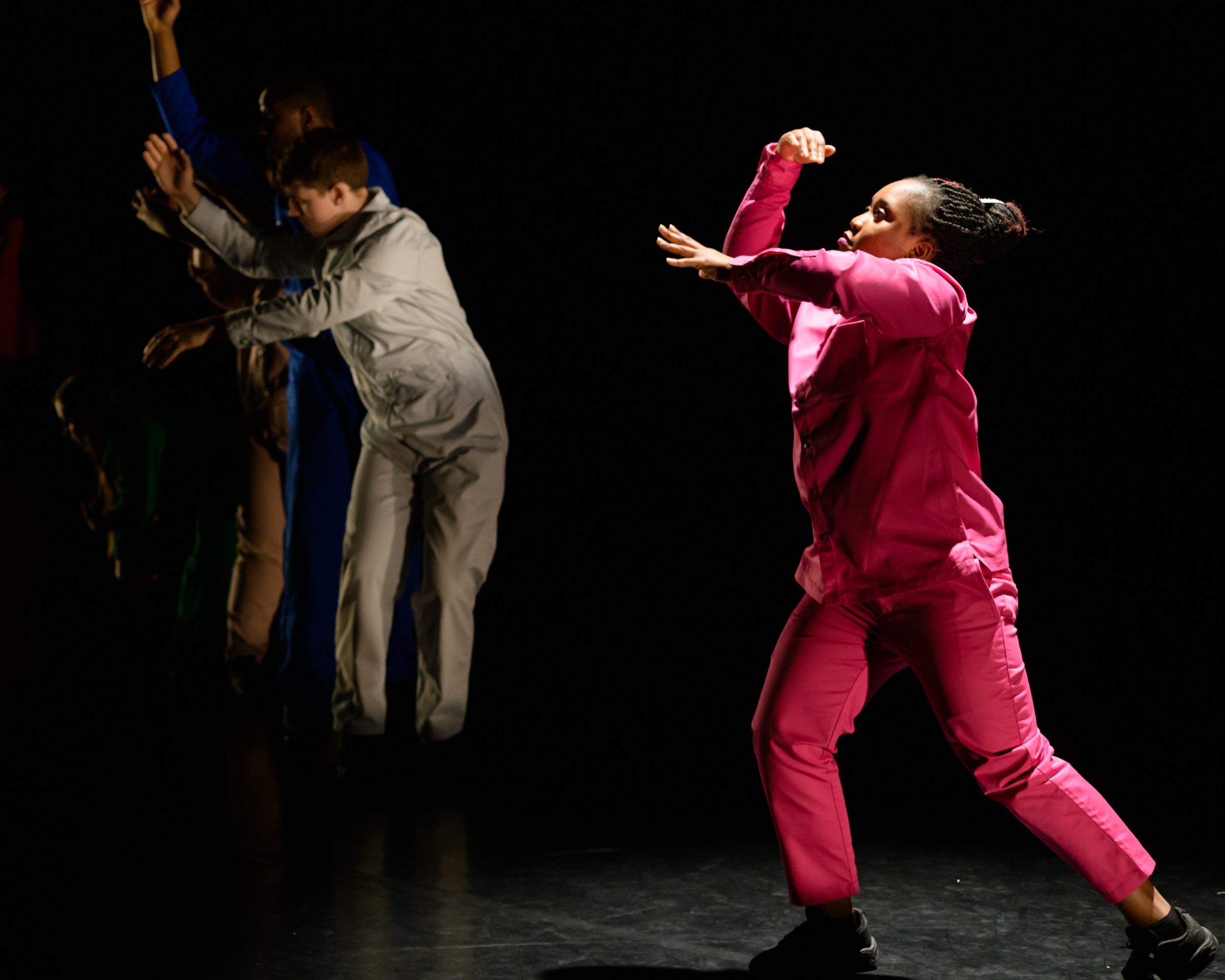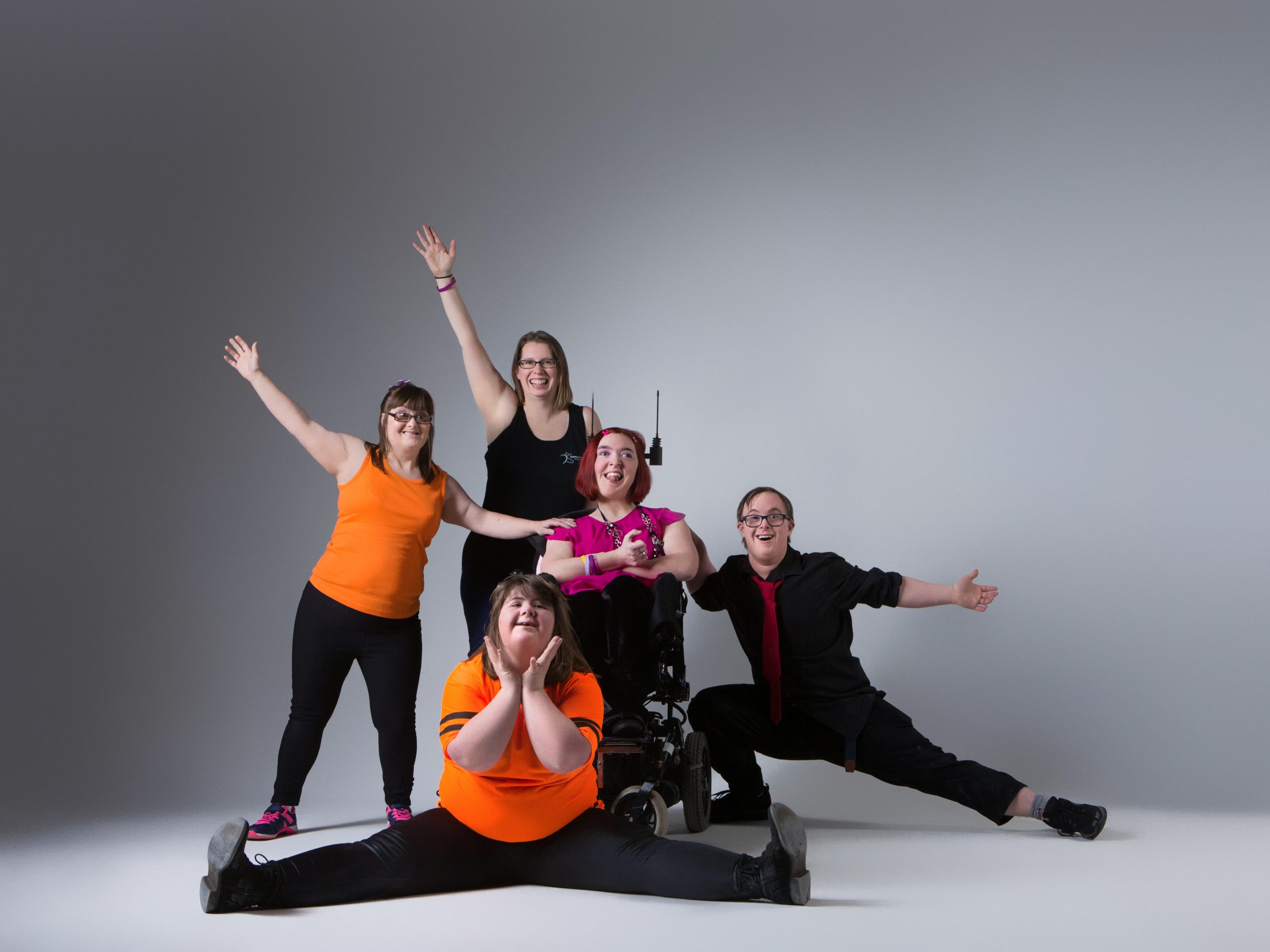Support providers, dance companies, employment projects and counsellors have all had to work differently and adapt to life in lockdown over Covid-19 – rapidly and radically
As the country went into lockdown, organisations supporting people with learning disabilities had to respond fast, and show imagination, flexibility and boldness.
Creative amid chaos
Jo Adshead, chief executive of Linkability, a care and support provider, Lancashire
We’ve come a long way since the extent of our advice was to wash your hands. We wondered at first if coronavirus would hit Greater Manchester and Lancashire’s market towns where we work in the same way as it had other places.
Then we began to help anxious families debating how over-70s self-isolation would work alongside supporting sons and daughters. Staff teams were also making plans for their own vulnerable relatives, work and their own health, and worrying about loved ones elsewhere. Yes, we’ve had PPE issues but, so far, we’ve overcome them – our reception area is now a warehouse with distribution through the side window. Our staff at all levels are truly amazing; they’ve worked many, many additional hours, complied with social distancing and kept this terrible virus out of our organisation (fingers crossed and crossed again).
There has been little or no staff absence other than those who have been shielding or have had symptoms, and, even then, people have been fighting to get back. One employee made her lorry driver husband stay in an empty flat she knew of so she could get back quicker.
Another took up residence with the three women she supports for two weeks while two of them had symptoms, leaving her two young children with her husband. The rest of the team made rainbows for the women to wake up to on their front lawn and delivered pizzas to the doorstep.
Teams have thought up creative ways to occupy and comfort people and establish reassuring routines, including afternoon tea and activities in the sunshine. What has been striking is a real sense that we are all in this together and no one is unaffected. We’ve laughed and cried. We’re in chaos but then we’ve always thrived in ever-changing situations. It’s how we are, and we quite like that.
But we do wish this awful virus would go away.
Virtually interactive
Peter Rainford, volunteer at Strawberry Field Steps to Work programme, Salvation Army, Liverpool
We have all had to change how we work and be more creative. The Strawberry Field Steps to Work scheme has responded by creating Steps from Home. Steps to Work reaches out to adults aged 18-25 with learning difficulties or other barriers to employment through a training hub at the Strawberry Field centre, and arranges work placements in Liverpool.
Keeping trainees motivated and supported has been key. Our virtual activities include exercises, reflective quotes and sharing happy memories. Technology has allowed an informal way of “keeping in touch” to evolve into Steps from Home. Each day, trainees spend up to an hour interacting with each other online and the Steps to Work team. Sessions include wellbeing activities, quizzes, Strawberry Field‘s Got Talent and messages of hope and reflection. Trainees have made “self-soothing boxes” containing items that make them feel better and taken part in online lessons on how to draw cartoons.
Our trainees say Steps from Home offers opportunities to socialise as well as providing encouragement and support.
‘We shocked ourselves’
Noelle Blackman, chief executive of Respond, which works with people with learning disabilities who have experienced abuse or trauma
The core of our work is psychotherapy and our other services are informed by this. The pandemic and the notion of social distancing have challenged our key ethos of basing our work around personal relationships and being connected to the people that we support.
It would be so much better to refer to “physical” rather than “social” distancing. During such a time of crisis, we need to be in social contact to support one another. With this in mind, we shocked ourselves as an organisation by managing to move 90% of the people in therapy or receiving advocacy support to video platforms or telephone sessions within the first week or so of lockdown.
Most of our team would have thought this impossible a few months ago and been against working this way. However, wanting to stay connected has made the transition relatively smooth and successful. It is not as good as being in the room with someone but it is good enough and we are pleased that we have been able to keep these important connections going.
Next, we want to redesign some of our training so it can be delivered online. This is difficult as much of it is based on experience and observation, but we are excited to see what we can create.
Practical help and legal advocacy
Dolly Galvis, chief executive officer of the Elfrida Society, advocacy and support provider, London Borough of Islington
Our advocacy team quickly changed working practices to ensure Islington’s Covid-19 response teams and resources were accessible to people with learning disabilities.
We are working with Islington Learning Disability Partnership to ensure those most at risk are assessed and support is in place. As well as social services, we work alongside We Are Islington (the council’s helpline), mutual aid teams, mental health support services, health professionals and others to ensure access to food, medicine, therapy, social support, legal advice and emergency repairs.
We continually keep up to date and share policy changes to ensure individuals understand their rights. Our specialist parent advocacy service continues to work with parents with learning disabilities to attend remote emergency court hearings, understand their rights, navigate the legal system, communicate with schools and ensure reasonable adjustments are in place.
Covid-19 has made our work even harder. We will continue to explore emergency funding and make use of government initiatives to remain resilient and respond effectively to increased demand.
Inventive ideas
Sue Pemberton, chief executive of Integrate, community-based support provider, Lancashire and Greater Manchester
There has been a big change in how we operate – we have gone from being a friendly, open office welcoming people in to having many people working at home and senior teams being quite dispersed. We have been lucky in that no one we support has had the virus so far, but have had lots of offers from staff to stay with people for the duration should that be necessary. Staff teams changed working patterns and have been amazing.
A lot of the people we support are struggling with isolation. Staff are being inventive regarding support. People we work with have been taking up gardening and cooking for the first time. One has decorated their hallway; another has built decking in their garden. People have made model cars and one a Lego Volkswagen camper van, which took 12 hours. One
person has become fitter and healthier through cooking healthier meals and eating less junk food. One man, determined to stay fit, bought a rolling road for his bike. All these people would normally be out and about, and staying in has been quite productive and positive for them.
We have adapted well to home working and Zoom meetings. I don’t think we have been hit as hard as those in London, although finding PPE is not without problems, and there are constant changes to legislation and guidance. We decided to look at the positives, and it’s been good to see the staff so upbeat.
Dancing together at a distance
Sarah Calderbank, project coordinator, at DanceSyndrome, inclusive dance charity, Lancashire
Everyone at DanceSyndrome was disappointed when they were forced to cancel regular community dance sessions
due to the coronavirus outbreak. Regular participants missed seeing friends and dancing together.
Knowing how important face-to-face interaction is to wellbeing, the company’s dancers put together a programme of online dance sessions to do at home.
They have been offering live, interactive Zoom sessions, with a small charge to help the charity to cover costs. There are also free sessions on YouTube, with new sessions released four days a week. All of these are jointly led by people with learning disabilities, are fully inclusive and can be adapted to meet individual needs.
The show goes on – on the BBC
Sarah Archdeacon, artistic director at Corali, a company where dance is created by people with learning disabilities, London
We thought carefully about the best ways to stay connected to our performers, some of whom had not been online before.
Our first idea was for dancers to make YouTube films so we could all keep dancing at home. Corali dancers DJ, Paul and Bethan created sessions. We know everyone misses seeing each other so have been testing out Zoom classes too. In addition, we are running “sign of the week” to help people learn sign language, and a monthly Corali creative challenge.
The BBC included a film we made last year with the Tate in its Culture Under Quarantine initiative. The response has been incredibly positive, proving the  quality of dancers with learning disabilities and how they capture the nation’s imagination. It is not the same as being in the studio together, but it has certainly encouraged us to think creatively in new ways.
quality of dancers with learning disabilities and how they capture the nation’s imagination. It is not the same as being in the studio together, but it has certainly encouraged us to think creatively in new ways.

